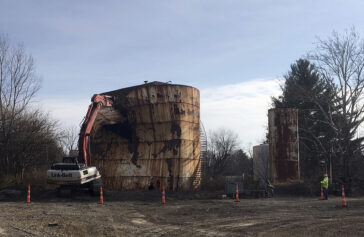June 25, 2021
Beat of the Week
(Honorable Mention)
Armed with sensitivity and hard facts, AP talks with ‘Big Lie’ believers
deftly explored political conspiracy theories and those who embrace them, traveling to Wisconsin where thousands of Donald Trump’s most loyal supporters recently gathered to hear speakers, including the former president himself on video, push the lie that the 2020 election was stolen.The subject is challenging to report without bringing more attention to the conspiracies or needlessly demeaning adherents who, though deeply misguided, genuinely believe the lies that are being advanced. Yet this work is critical to understanding the political dynamics that are unfolding every day in the U.S.Colvin’s story stands out from much of the reporting on this right-wing movement because she took the time to listen — really listen — to the people who attended and to understand what motivates them to accept outlandish theories.But Colvin didn’t hold back. Rather than relying on vague adjectives or stock fact-checking paragraphs, she built a narrative that repeatedly points to concrete evidence of what actually happened in the 2020 election. Using direct and pointed language, the White House reporter makes clear that these baseless claims are completely false and part of a broader pattern of events centered on deceit. “Taken together, the gatherings have gelled into a convention circuit of delusion centered on the false premise that the election was stolen,” she wrote.The result is revealing and distinctive journalism. Brian Stelter led his widely read media newsletter with Colvin’s story, saying it “perfectly sums up this moment in politics.” https://aplink.news/gau

















